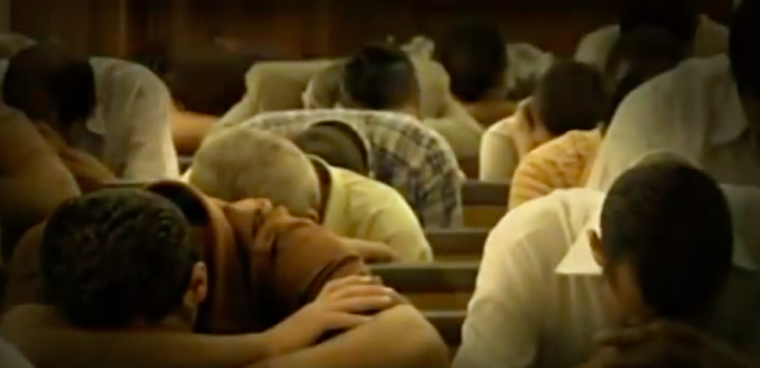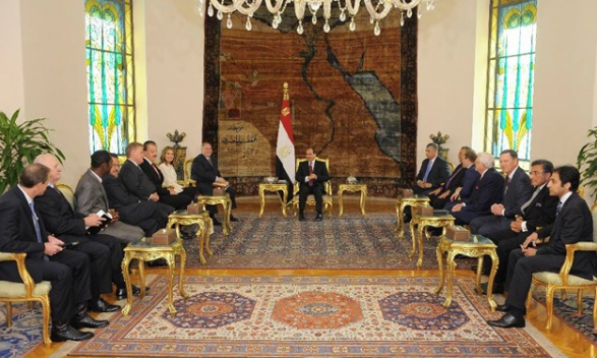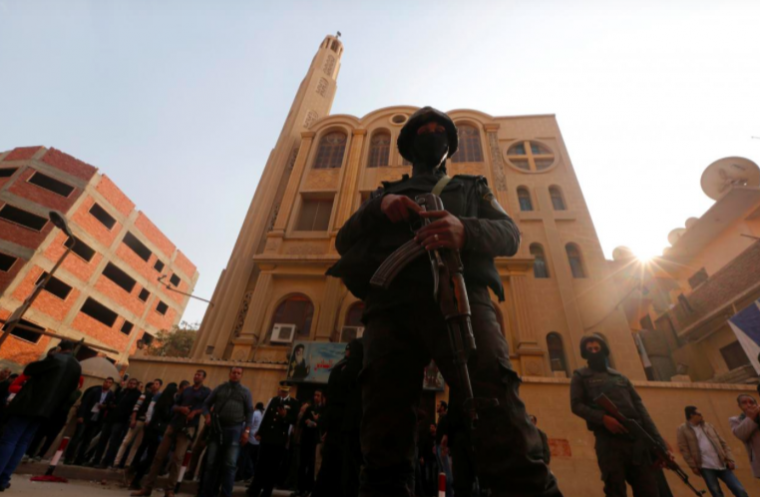Can Donald Trump – or anyone else – make a difference for Christians in the Middle East?
'Men in suits.'
That is how an evangelical church leader in Cairo described the meeting of Donald Trump-supporting US evangelicals with Egyptian President Sisi in December.
'That does not really excite me – those type of front-of-camera meetings. I am almost sure what the president told them word by word.
'Those are the nice suits meetings that show again a nice language of support for the Christian community. "The government understands the problems", they say. "The government is working to solve them one by one," they will add.
'This nice delegation has taken the fight out of the country and gone home and what stays in the country stays in the country.
'The situation stays the same.'

'Michael's' real name is hidden to protect his identity. That says a lot about 'the situation', as he describes it, in Egypt – a country which was shot up the rankings of the worst to be a Christian. Persecution charity Open Doors said 'unprecedented' violence fuelled by extremists fleeing Iraq and Syria means life for Christians in Egypt is precarious.
Christian persecution across the Middle East has been one of Donald Trump's foreign policy themes, attracting enthusiastic support from his unofficial evangelical advisory board.
But Michael is sceptical. Egyptians are laughing at Trump, he says in an interview with Christian Today. And in general Egyptian society, including Christians, doesn't care about what Trump says or does because however much his supporters talk about persecution, it makes little difference to those actually being persecuted.
In fact, with Trump's decision to move the US Israeli embassy from Tel Aviv to Jerusalem, American support can actually be damaging for Christians in the Middle East.
It is not only Trump. Michael is convinced that foreign influence in general does little to help Egyptian Christians. Change, he says, must come from within.
'Egyptian society is very fragile when it comes to the issues of Christians and the church,' says Michael. 'It has always been like that and it always will be like that unless change comes from the bottom.
'I don't think change will come from the top,' he says. 'I don't think any body from abroad can help.
'I doubt that any pressure from aboard, from the American administration or another government, will be able to really bring about a drastic change to the situation of the Egyptian Christian community. The pressure from abroad has actually proved to be more damaging to the Christian community than bringing good stuff.'

Describing everyday life for Egyptian Christians, who make up roughly half of Christians across the entire Middle East and 10 per cent of the country's 95 million strong population, Michael says it is one of 'fear and anxiety'.
There is a stark difference, he says, between cites such as Alexandria and Cairo where many are well-educated, and the rural villages where widespread illiteracy allows religious fanaticism to flourish.
President Sisi's many warm words to his country's Christian community, which has been riddled with attacks in the last 12 months, bring little comfort out in deserted villages.
'The dominant powers are Muslim in those villages,' he says. 'Imams are looked at with great respect. They look at him as the ultimate source of truth. So when that source of truth says "Let's burn that church down" or that there is a rumour of a Christian man running away with a Muslim girl, people listen.
'They are easily ignited with anger and run to punish the Christian community. We have seen whole families forced to leave their villages because of a rumour that resulted into a state of disruption.
'In the rural areas there is much more fertile soil for fanaticism and anti-Christian sentiment than in the cities like Cairo and Alexandria.'

He goes on: 'When the local Christian community looks out and see that the dominant control is not really in the hands of President Sisi but in the local fanatical authorities you feel you do not have anywhere to go. You are in a situation where local authorities are expressing pressure daily.'
He adds: 'Your children have to go to the local school, you go to the local hospital for treatment, buy your food in the local shop and in all those places the heavy hand of fanaticism is clearly evident and seen.'
Beneath this everyday discrimination that itself underpins the violent attacks such as the Easter day bombing that killed 49 people last year, are deep levels of misunderstanding about Christianity, says Michael.
When locals hear music and laughter in church they assume illicit sexual activity is taking place, not worship. They believe Christians defile God by claiming he had a son, and so are 'infidels' – those with a bad faith.
Before there will be any reduction of the number of attacks or change in the everyday discrimination Christians in Egypt suffer, there must be a shift in these grassroots beliefs about Christianity, says Michael. And that is something on which US evangelicals or any other foreign power can have little influence.











